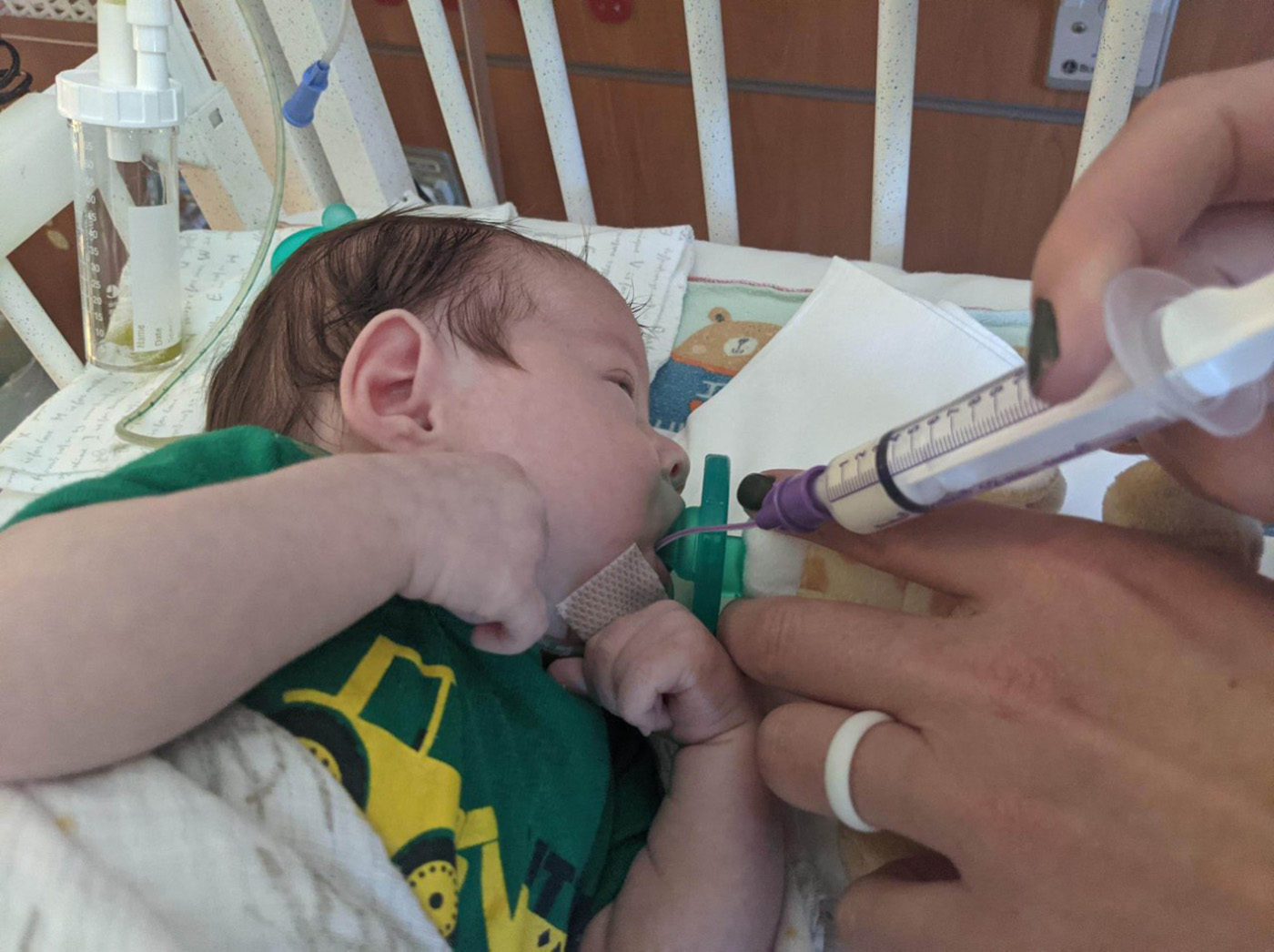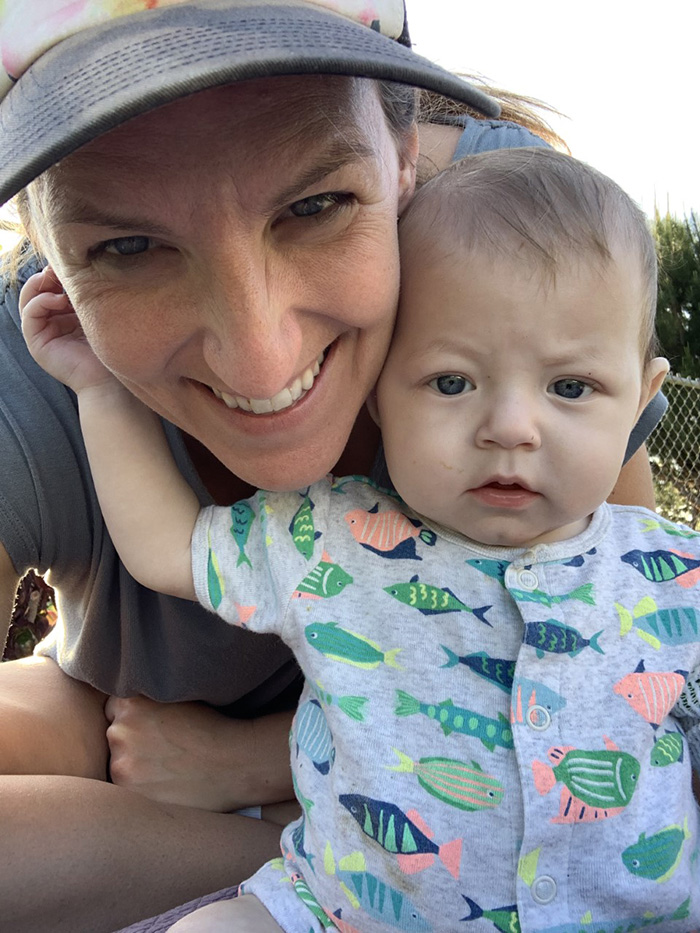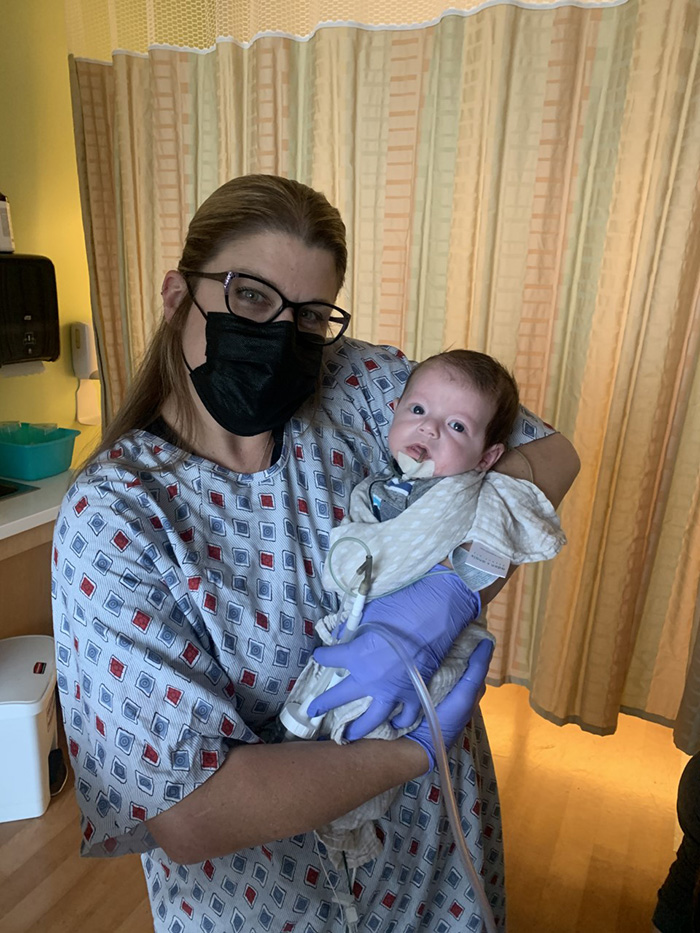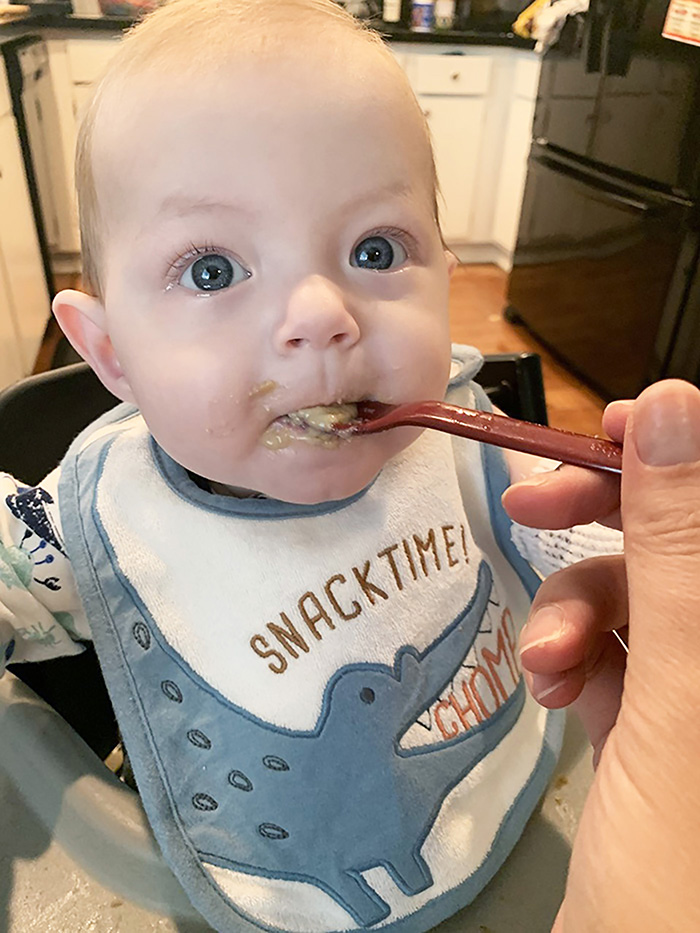May is National Better Speech and Hearing Month, which is a month that recognizes and raises awareness about communication disorders and the speech therapists that provide life-altering treatment to patients.
Many people think that speech therapists only work on speech production and language skills, but that is only one part of what speech therapists provide. They also provide aid to patients with feeding challenges.
At CHOC’s speech and language pathology program, speech therapists are active in all inpatient and outpatient settings, focusing on cognitive play skills; higher-level cognitive functioning and processing; speech and language development; and even feeding and swallowing skills for breast- and bottle-feeding.
They will provide assessments and treatments for patients recovering from speech and feeding challenges caused by premature birth, brain injuries, tracheostomies and ventilators (breathing tubes) and congenital difficulties (birth defects).
Here, Karin Mitchell, a speech and language pathologist at CHOC, shares how her team helped baby Warren — who was born with severe complications with his intestines — learn how to eat and enjoy being fed.
Gastroschisis and oral aversion
Warren was born preterm at 36 weeks with gastroschisis, a birth defect that caused his intestines to develop on the outside of his abdomen while in utero. After he was born, he required intense medical care at CHOC’s Neonatal Intensive Care Unit (NICU), where he was on a ventilator for breathing support and required multiple procedures to put his intestines back into his abdomen safely.
Unfortunately, Warren’s treatment quickly became more complicated when some of his intestines needed to be removed. He underwent additional procedures and had to continue to be supported by the ventilator. Warren also needed a tube placed through his mouth and throat to his stomach to suction out stomach fluids that he was unable to tolerate.

Warren needed this tube for the first four months of his life, and he wasn’t allowed to eat any food by mouth. Instead, he was given nutrients through an IV.

Although these measures were vital in keeping Warren breathing and fed, they were hard on his little body. When babies experience painful and stressful experiences like receiving surgeries and being intubated — like the ventilator and suction tube for Warren — they may resist being fed orally when it comes time. This resistance is called oral aversion and can cause babies to refuse to eat or drink by mouth for several months — or even years.
Sham feeding promotes latching and swallowing for infants
To help, speech therapists at CHOC implemented a unique program called sham feeding for infants in the NICU. Sham feeding consists of giving small tastes of milk to an infant from a bottle or breast so they can practice latching as well as the swallowing movement patterns that are needed to eat safely.
Then, because infants with gastrointestinal issues can’t yet process the milk, the tube used to suction out their stomach fluids tube will suction out the milk.
Since the program started at CHOC about 10 years ago, the number of babies that can eat by mouth when discharged from the NICU has dramatically improved. Interventions like these are performed daily with patients and families during speech therapy; parents and caregivers receive the support they need to be confident that they can care for and feed their infants.
Feeding interventions by speech therapists make all the difference
During Warren’s journey at the NICU with Karin and the speech therapy team, he learned how to latch and suck more efficiently; his swallowing strength and coordination improved; and he was able to learn how to eat by mouth. When he was discharged, he could be breast- and bottle-fed and enjoy pureed food by spoon.

With the program, Amber, Warren’s mom, was able to practice breastfeeding him at 10 weeks old. She says, “Being able to have that connection with my son was amazing, especially after all that we had been through together up to that point.”
Once Warren’s digestive track had healed enough, Amber was then able to transition to full breastfeeding with Warren. After about 6 months in the NICU, Warren was discharged. He is now 8 months old and is exclusively breastfed and eating solid foods at home.

“I hold such a special place in my heart for the wonderful staff at CHOC and for the sham feeding program,” says Amber. “I am so thankful for the skills Warren learned while under their care.
Get more expert health advice delivered to your inbox monthly by subscribing to the KidsHealth newsletter here.
Learn more about Speech and Language Pathology at CHOC
At CHOC, Speech and language pathologists assess and treat a variety of disorders including: feeding disorders, swallowing disorders, cognitive-communication disorders, voice disorders, motor speech disorders and more.





